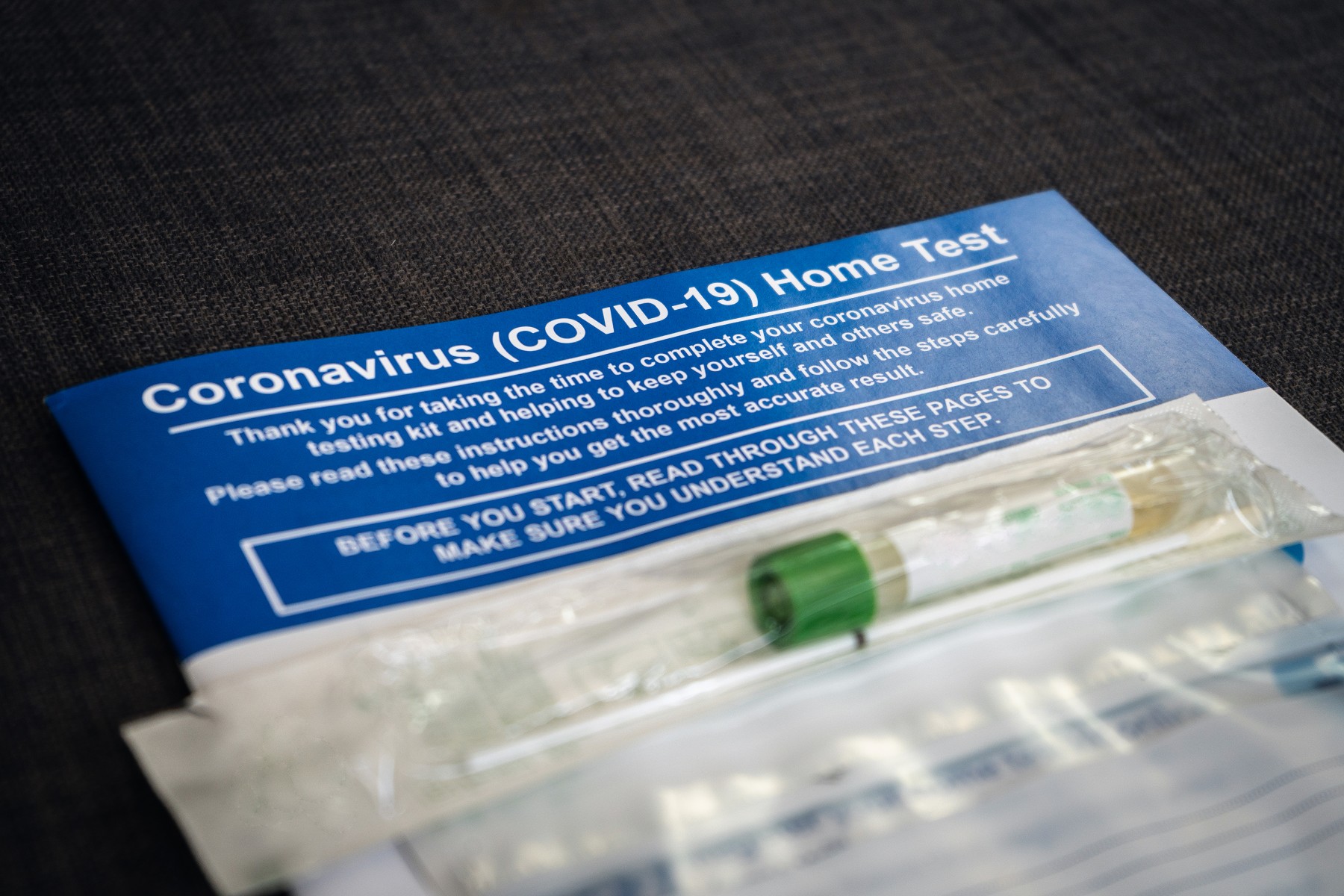What You Need to Know About At-Home COVID-19 Test Kits
Your highly allergic child wakes up sneezing and congested. You think allergies are probably the cause. But if you’re worried about possible COVID-19 infection, an at-home test could help parents know for sure.
A variety of brands on the market offer the convenience of testing for COVID-19 at home. These kits can be purchased at retail stores or online as an alternative to seeking out a testing site or busy healthcare provider for a COVID-19 test.
Alice Phillips, M.D., a Cook Children’s pediatrician, explains what parents need to know about the reliability, timing and results of the at-home COVID-19 testing options approved by the U.S. Food & Drug Administration (FDA).
First, if your child is running a fever: KEEP HIM OR HER HOME.
“Any illness with fever is likely contagious, and we don’t want to spread strep, flu or even colds,” Dr. Phillips said. “If your child feels great but with mild symptoms, at-home tests provide parents with the ability to quickly screen their kids.”
As a reminder, Dr. Phillips listed some common COVID-19 symptoms: cough, congestion, sore throat, fever, diarrhea, and potentially loss of smell or taste. However, not everyone infected with the SARS-CoV-2 virus shows symptoms.
At-home rapid antigen tests look for the presence of proteins from the surface of the virus, she explained. These tests have reported ability to accurately detect disease in the 65-85% range in patients with symptoms, Dr. Phillips said. That falls to the 35-40% range if asymptomatic.
“Timing of the test is critical,” she said. “Sometimes testing too early in the illness could result in a false negative. This is why the kits include two tests.”
The U.S. Centers for Disease Control and Prevention (CDC) considers testing a critically important tool to help reduce the spread the disease. Those who have symptoms or exposure to someone with COVID-19 should be tested regardless of whether they’re vaccinated, according to the CDC.
Type and price of at-home kits vary. Some tests require a nasal swab, while others require a saliva specimen. Antigen tests deliver results within about 15 minutes, while the more sensitive PCR test takes at least 24 hours.
The CDC website provides these tips:
- Check the expiration date. Don’t use if past-date or if the kit’s components appear damaged.
- Read the manufacturer’s instructions completely before opening the test devices.
- Clean the tabletop or surface where the test will take place. Wash your hands with soap.
- Follow the directions step by step. Otherwise, incorrect results can occur.
Dr. Phillips gives some guidance for what happens next.
The result is positive. “Believe it! I am sorry, but your child has COVID. No repeat test is needed. The good news is most kids have mild cases. Call your pediatrician for questions or perhaps set up a telemedicine visit to discuss treatment options and for your doctor to lay an eye on your kiddo in a safe way for all.”
The result is negative. Using the second test in the kit, repeat the test in 24-36 hours to confirm the finding. In the meantime “if your child has symptoms highly suspicious for COVID or fever, keep them home to help protect your community.”
The CDC points out that the results of at-home tests might come back inconclusive or invalid due to user error or a malfunction in the device. If that happens, the CDC recommends contacting the test manufacturer for assistance.
Accuracy depends in part on the quality of the nasal/saliva sample. Whether a child undergoes the test at a clinic or at home, the process of obtaining a specimen can be… interesting, in the words of Dr. Phillips.
“Have you ever wrestled an angry Tyrannosaurus Rex? This would be what it is like to push a swab up the nose of a 3-year-old with fever and cough.
“And then there is the teenager. Tired, grumpy and does not really want to go to school anyway. You eagerly describe to them that you are going to place a swab in their nose and rotate for 15 seconds on each side. Hmmm. Not a happy customer,” she described.
A positive result on an at-home COVID-19 test should be reported to the state or local health department. This helps officials to keep accurate information on transmission rates in the community. Click here to report for Tarrant County: COVID-19 (tarrantcounty.com
Meet Dr. Alice Phillips
Dr. Phillips earned her undergraduate degree from Texas A & M University. After completing medical school at Baylor College of Medicine in Houston Texas, she completed her Pediatric Residency at  Texas Children's Hospital in Houston. She and her family relocated to Fort Worth in 1996 when she joined Cook Children's Physician Network at the Cityview Office.
Texas Children's Hospital in Houston. She and her family relocated to Fort Worth in 1996 when she joined Cook Children's Physician Network at the Cityview Office.
After raising two children, Dr. Phillips focused on her passion for serving at-need Fort Worth children. Serving the children of Fort Worth does not end at the end of the work day. She has served as the Founding Director for a Big Brother's Big Sisters, Big Hope Student Mentoring program through her church. This program matches at-risk kids at FWISD's Rosemont Elementary School with mentors. In addition she supports back-to-school uniform drives and Christmas projects to provide Christmas presents for more than 500 FWISD students.
To continue in her pursuits of helping at-risk children, Dr. Phillips recently completed her Master’s in Public Health at University of North Texas Health Science Center. She now serves as the Medical Director of Ambulatory Quality and Safety for Cook Children’s.
